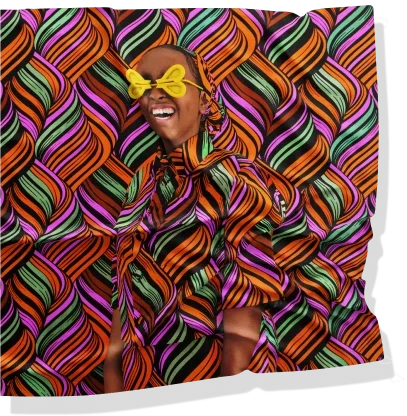




Healing
As a child in rural Kenya, Mumina Jirmo wanted to be like any other girl she knew. And that meant taking part in a deeply harmful tradition.
“I was 7 years old,” she says, recalling the day she endured female genital mutilation (FGM). She thought it was just a rite of passage for girls. “Nobody wanted to associate with somebody who had not gone through the cut because it was a cultural norm.”
Later she understood the trauma to her body. Her periods were extremely painful, and when she married, her pregnancies were marked by agonizing complications.
“I never wanted anybody to go through the pain I went through,”
she says. So she began focusing on trying to heal herself and others. She founded the Women Rising Initiative to educate people on the harms of the practice and give mothers and daughters a platform to share their stories.
“When they share the stories, they release their traumas,”
she says. “This is the journey of healing.”
Merry also underwent the procedure at 7 years old. As a girl growing up in The Gambia, she had never heard of the practice and found the brutality shocking: “It was very painful because there was no medication given to me.”
The procedure is illegal in The Gambia and Kenya, but is still performed. Now an advocate to end it, Merry says,
“One person cannot do it alone. We need to join hands.”
One woman extending a hand in The Gambia is Ida Baldeh. A survivor who endured the practice at age 9, she works with the Network Against Gender Based Violence, spreading the important message that women and girls need to make their own decisions about their bodies.
“We have to know what is best for us,” she says. “Let’s not let somebody else decide for us.”


